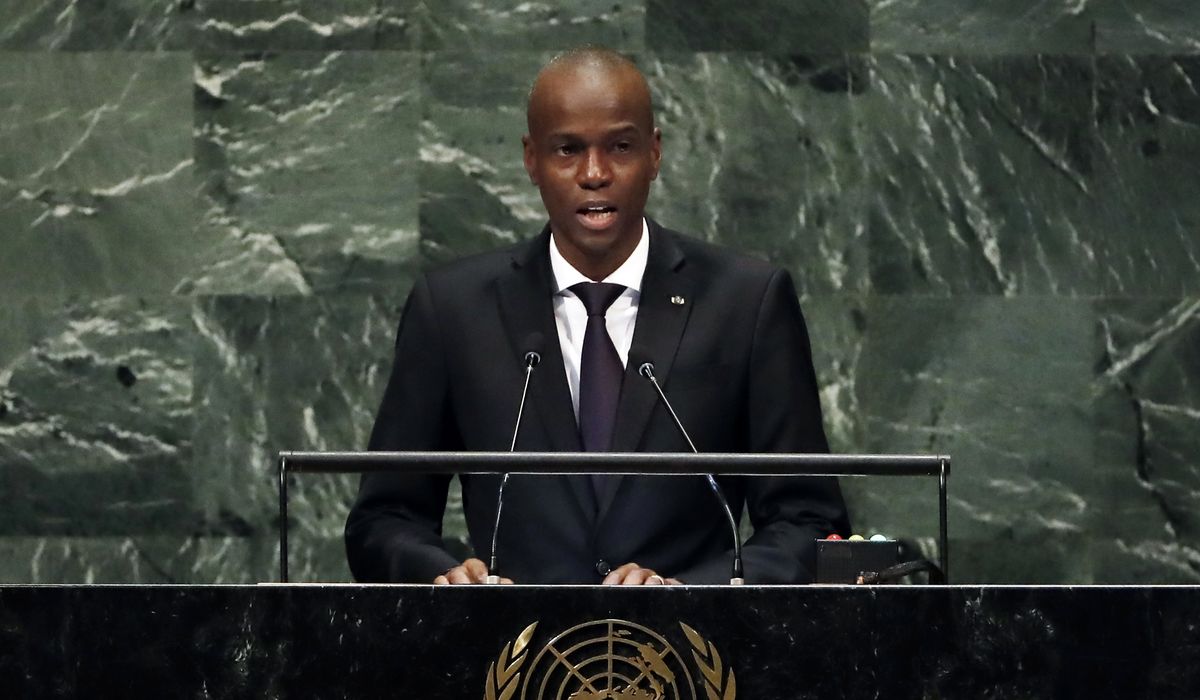
Gunmen assassinated the president of Haiti in an attack at his private residence early Wednesday, sparking new concerns about unrest in the Caribbean nation.
President Jovenel Moïse, 53, was killed and his wife, Martine, was injured and hospitalized, interim Prime Minister Claude Joseph said in a brief statement.
Some of the gunmen spoke Spanish, he said.
Mr. Joseph condemned the attack as a “hateful, inhumane and barbaric act” and said “all measures had been taken” to continue government operations.
The Haitian Embassy in Canada also confirmed the death.
“It is with great sadness that we confirm the assassination of President Jovenel Moise, during an attack on his residence by mercenaries,” it tweeted. “The First Lady, injured, receives the necessary care. Our hearts go out to the presidential family and to the whole nation.”
Mr. Moise had been in charge since February 2017, though the opposition accused him of unlawfully extending his mandate.
The assassination comes at a tumultuous time for Haiti. The nation has been rocked by gang violence, political instability and food shortages.
Homeland Security Secretary Alejandro N. Mayorkas in May extended a deportation amnesty, or Temporary Protected Status (TPS), for about 100,000 Haitians in the U.S. for 18 months.
His department cited “serious security concerns, social unrest, an increase in human rights abuses, crippling poverty, and lack of basic resources rendering the country unsafe for nationals to return.”
Tens of thousands of Haitians remain in the U.S. under protection from a TPS grant issued in 2010 after a major earthquake devastated the country.







